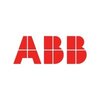Filter interviews by
Igus India Product Engineer Interview Questions and Answers
Igus India Product Engineer Interview Experiences
3 interviews found

(2 Questions)
- Q1. What is Bearing and its types?
- Ans.
Bearings are components that allow for smooth rotation or movement between two parts.
Bearings reduce friction between moving parts
Types of bearings include ball bearings, roller bearings, and plain bearings
Ball bearings use balls to reduce friction, roller bearings use cylinders, and plain bearings have a sliding surface
- Q2. What is friction and explain it?
- Ans.
Friction is the force that resists the relative motion or tendency of such motion of two surfaces in contact.
Friction is caused by the roughness of surfaces in contact.
It acts in the opposite direction of the applied force.
Friction can be static (no motion), kinetic (motion), or rolling.
Examples include rubbing hands together to create heat due to friction and the stopping of a moving car due to friction between the ti
Interview Preparation Tips

(2 Questions)
- Q1. Basics of Engineering
- Q2. Speed, Velocity, Temperature, Pressure, PV Value, Bush & Bearings Use
Interview Preparation Tips
I applied via Referral and was interviewed before Sep 2019. There was 1 interview round.
Interview Questionnaire
1 Question
- Q1. What is tolerance? Difference between speed and velocity? Calculate sliding velocity?
- Ans.
Tolerance is the allowable variation in a product's dimensions. Speed is scalar, velocity is vector. Sliding velocity is the velocity of a sliding object.
Tolerance is the range of acceptable variation in a product's dimensions
Speed is the rate at which an object moves, while velocity is the rate at which an object moves in a specific direction
Sliding velocity is the velocity of an object that is sliding on a surface
Sli...
Interview Preparation Tips
Skills evaluated in this interview
Top trending discussions






Interview questions from similar companies

An aptitude test is designed to assess an individual's ability to perform certain tasks or react to a range of different situations. These tests are often used by educational institutions and employers to evaluate potential candidates' skills, talents, and potential for success in a specific role or academic program. Here are some key details about aptitude tests:
1. **Purpose**: Aptitude tests are used to measure a variety of skills, including logical reasoning, verbal ability, numerical skills, and spatial awareness. They help to identify strengths and weaknesses and predict future performance.
2. **Types**:
- **Verbal Reasoning**: Assesses understanding and reasoning using concepts framed in words.
- **Numerical Reasoning**: Tests ability to work with numbers, including basic arithmetic, data interpretation, and logical problem-solving.
- **Abstract Reasoning**: Evaluates the ability to identify patterns, logical rules, and trends in new data.
- **Mechanical Reasoning**: Measures understanding of mechanical and physical principles.
- **Spatial Reasoning**: Assesses the ability to visualize and manipulate objects.
3. **Format**: Aptitude tests can be multiple-choice, true/false, or involve practical problem-solving tasks. They are often timed, with specific sections dedicated to each type of reasoning.
4. **Preparation**:
- **Practice Tests**: Taking practice tests helps familiarize with the format and types of questions.
- **Study Guides**: Reviewing basic concepts in mathematics, grammar, and logical reasoning.
- **Skills Development**: Enhancing skills through puzzles, reading, and other related activities.
5. **Usage**:
- **Recruitment**: Employers use aptitude tests to screen job applicants and find the best fit for a role.
- **Education**: Schools and colleges use these tests for admissions, placement, and identifying areas for student improvement.
- **Career Counseling**: Helps individuals understand their strengths and areas for improvement, guiding career choices.
6. **Scoring**: Scores are typically presented as percentiles, showing how a test-taker compares to a norm group. Higher scores indicate better performance relative to the norm group.
If you have specific questions about a certain type of aptitude test or need preparation tips, feel free to ask!
(2 Questions)
- Q1. Tell me about yourself.Tip: Provide a brief overview of your professional background, focusing on experiences relevant to the job you're applying for. Highlight your key achievements and skills.
- Q2. Know YourselfAssess and interest.
Interview Preparation Tips

I applied via Naukri.com and was interviewed in Jun 2024. There was 1 interview round.
(2 Questions)
- Q1. Was your performance evaluated in your previous company?
- Ans.
Yes, my performance was evaluated through regular performance reviews and feedback sessions.
Performance evaluations were conducted on a quarterly basis.
Feedback sessions were held to discuss strengths and areas for improvement.
Achievements and goals were reviewed to track progress.
Received positive feedback on project completion and problem-solving skills.
- Q2. What were your strengths in your previous company?
- Ans.
My strengths in my previous company included strong problem-solving skills, attention to detail, and the ability to work well under pressure.
Strong problem-solving skills - I was able to quickly identify and resolve production issues to minimize downtime.
Attention to detail - I consistently ensured that all production processes were carried out accurately and efficiently.
Ability to work well under pressure - I thrived ...
Interview Preparation Tips
- Basic

Production Engineer Interview Questions & Answers
Seoyon E-hwa Automotiveposted on 26 Oct 2024
I applied via Approached by Company and was interviewed in Sep 2024. There was 1 interview round.
(1 Question)
- Q1. Machine related questions Ans Injections moulding horizontal type machine handle

I applied via Walk-in and was interviewed in Aug 2023. There were 3 interview rounds.

Group discussion is when a group of people comes together to discuss a certain topic. Many Recruiters use group discussion (GD) to test a candidate's communication skills, leadership skills, test topic knowledge, etc. There are also two other types of GD that test the lateral thinking of a candidate.
Case study is an in-depth study of one person, group, or event. In a case study, nearly every aspect of the subject's life and history is analyzed to seek patterns and causes of behavior
Interview Preparation Tips
As a qualified Mechanical Engineer, I am adept in application development & enhancement and believe that will prove to be an asset for the company.
Please take a minute to go through the attached Resume for your consideration. It would be a pleasure if I can hear back from you regarding my job application.

I applied via Indeed and was interviewed before Jun 2021. There were 2 interview rounds.

(2 Questions)
- Q1. General Questions ❓
- Q2. Your basic knowledge testing.
Interview Preparation Tips
- Basic technical

Production Supervisor Interview Questions & Answers
Maxxis Rubberposted on 19 Oct 2023

(3 Questions)
- Q1. What is the 7QC ?
- Ans.
7QC stands for Seven Quality Control Tools, which are a set of techniques used for quality improvement in production processes.
The 7QC include tools such as Pareto charts, cause-and-effect diagrams, scatter diagrams, control charts, histograms, check sheets, and flowcharts.
These tools help identify and solve quality-related issues in production processes.
For example, a Pareto chart can help prioritize the most signific...
- Q2. What is the TPM?
- Ans.
TPM stands for Total Productive Maintenance, a proactive approach to maintenance that aims to maximize equipment effectiveness.
TPM involves empowering operators to take ownership of equipment maintenance
Focuses on preventing breakdowns and improving overall equipment efficiency
Incorporates principles such as autonomous maintenance, planned maintenance, and continuous improvement
Example: Implementing daily equipment che...
- Q3. What is the TPM target?
- Ans.
TPM target stands for Total Productive Maintenance target, which is a goal set to maximize the efficiency and effectiveness of production equipment.
TPM target is a goal set to minimize equipment downtime and maximize productivity.
It involves proactive maintenance practices to prevent breakdowns and improve overall equipment effectiveness.
Examples of TPM targets include reducing unplanned downtime by 20% or increasing e...

(1 Question)
- Q1. Why you want to left current organization
Igus India Interview FAQs
Tell us how to improve this page.
Interview Questions for Popular Designations
- Product Owner Interview Questions
- Production Engineer Interview Questions
- Production Supervisor Interview Questions
- Senior Product Engineer Interview Questions
- Product Manager Interview Questions
- Product Developer Interview Questions
- Production Manager Interview Questions
- Lead Engineer Interview Questions
- Show more
Interview Questions from Similar Companies
Igus India Product Engineer Reviews and Ratings
based on 9 reviews
Rating in categories
|
Product Engineer
38
salaries
| ₹3 L/yr - ₹10.8 L/yr |
|
Technical Sales Engineer
7
salaries
| ₹3.4 L/yr - ₹8.6 L/yr |
|
Senior Sales Engineer
7
salaries
| ₹7.8 L/yr - ₹14 L/yr |
|
Sales Engineer
6
salaries
| ₹4.2 L/yr - ₹13.2 L/yr |
|
Inside Sales Engineer
5
salaries
| ₹3.5 L/yr - ₹6 L/yr |

Schaeffler India

SKF

Siemens

ABB
- Home >
- Interviews >
- Igus India Interview Questions >
- Igus India Product Engineer Interview Questions













